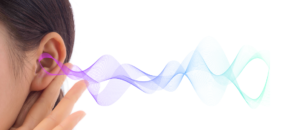Tinnitus and hydrogen peroxide. Can hydrogen peroxide cure you of Tinnitus. Actually, the jury is still out on this one. In fact, there have been strong anecdotal references that claim that hydrogen peroxide has helped some people with their Tinnitus, while making Tinnitus much worse for others!
How Hydrogen Peroxide can potentially help with your Tinnitus?
Hydrogen Peroxide is an ear wax softener. So, if you have excess ear wax buildup in your ears, you could be suffering from partial or even complete hearing loss. When you suffer from hearing loss, your brain begins to sense that your ears aren’t working or at least not working as well as they should be. We wrote a detailed post about how ear wax can cause Tinnitus here. Please read that post in addition to the contents of this page.
What is Your Tinnitus Handicap Score?
Calculate your THI Score in about 2-3 Minutes
So, your brain goes ahead and starts inventing a noise (ringing) to compensate for the lack of hearing that your ears will otherwise be capable of, if not for the ear wax.
The theory about curing Tinnitus with hydrogen peroxide then is to remove the ear wax by softening it and making it easier to get out. When impacted ear wax is out, you begin to hear normally. Your brains understands that your ears are working like before. The compensatory ringing sound that the brain was producing is shut off. You experience relief from Tinnitus.
That is the theory. Whether or not it will work for you is a big question mark. So, should you use hydrogen peroxide to try to cure yourself of Tinnitus? We wouldn’t recommend it without asking your doctor about it first. But, you could use the following sections to learn more about hydrogen peroxide as a potential Tinnitus cure though. You can then use your best judgment to decide if it will work for you or not. We still strongly advise that you seek a doctor’s advice though.
How Severe is Your Tinnitus?
Find out by using this THI (Tinnitus Handicap Inventory) Scoring Calculator
How does hydrogen peroxide soften ear wax?
Hydrogen peroxide is a very common ingredient in ear wax softeners. However, it’s usually available as carbamide peroxide. What’s the difference between hydrogen peroxide and carbamide peroxide? Carbamide peroxide contains oxygen and is also more pH friendly, making it a safer ingredient to use in ear wax softening solutions.
The carbamide peroxide introduces oxygen to the ear wax, causing an oxidation process. This process causes bubbling and fizzing that in turn softens impacted ear wax, dislodging it from where its stuck in your ear canal. You can read more about how hydrogen peroxide helps remove accumulated earwax here at this Healthline article.
What strength and dosage is safe?
Maximum allowed strength is;
Solutions containing hydrogen peroxide should not be stronger than 3% concentration levels. However, we do not recommend products that use hydrogen peroxide in its pure form. Carbamide peroxide, as mentioned earlier, is much safer. The maximum strength for carbamide peroxide is 6.5% concentration. This is the strength you will usually find in popular ear wax softener products like Debrox Earwax Removal Aid.
Maximum recommended dosage is;
- 5 to 10 drops per ear
- Up to twice daily
- Up to 4 days
We however STRONGLY advise that you don’t max out on the dosage. Try using just 5 drops once a day for 2-3 days to see if it will be enough to get rid of ear wax. If there’s no progress, we recommend that you discontinue use halfway rather than try a full course. If it doesn’t work after the first or second time, it’s probably not going to work at all. In fact, it could make your Tinnitus much louder.
How to use hydrogen peroxide (In Carbamide peroxide form) Ear Wax softening solutions?
- Tilt your head sideways, with affected ear facing up
- Drop 5-10 drops of solution into ear, without inserting dropper into ear canal (Please see dosage recommendation above)
- Cover your ear’s entrance with some cotton to prevent solution from flowing out (Do not stuff cotton in ear!)
- Wait 5 minutes
- Tilt your head over a sink, with your ear facing down this time
- Use a ear syringe to gently flush out your ear with lukewarm water
If the hydrogen peroxide was able to successfully soften your ear wax, the bits and pieces of wax will rinse out and fall into the sink.
What are the side effects of using hydrogen peroxide for Tinnitus?
As mentioned earlier, hydrogen peroxide may or may not help you with your Tinnitus condition. In some cases, it might leave you worse off than before, presenting some of the following side effects;
- Infections in the ear (Do not use if you already have a ear infection)
- Ear pain
- Perforated ear drum
- Tinnitus that gets worse
- Bitter taste
- Burning of ear drum or skin in ear canal (due to improper strength or dosage of solution used)




